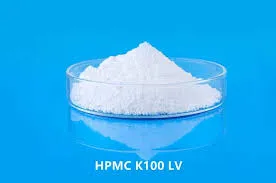
ಡಿಸೆ . 07, 2024 09:49 Back to list
hydroxyethyl cellulose
Hydroxyethyl Cellulose Properties, Applications, and Benefits
Hydroxyethyl cellulose (HEC) is a non-ionic, water-soluble polymer derived from cellulose, which is a natural polymer widely found in plant cell walls. The modification of cellulose through the introduction of hydroxyethyl groups results in a versatile compound that exhibits unique properties and a broad range of applications across various industries, including pharmaceuticals, cosmetics, food, and construction.
Properties of Hydroxyethyl Cellulose
HEC is known for its excellent thickening, gelling, and film-forming abilities. One of its remarkable properties is its capacity to dissolve in cold water to form a clear, viscous solution. The degree of substitution of the hydroxyethyl groups can be adjusted during its synthesis, allowing for control over its viscosity and solubility characteristics. This adaptability makes HEC an ideal candidate for various formulations.
Additionally, HEC is characterized by its pseudo-plasticity, which means that its viscosity decreases under shear stress. This property is particularly advantageous in applications like coatings and adhesives, where easy application is necessary, followed by the restoration of viscosity once the shear force is removed.
HEC is also known for its stability over a wide range of pH levels and temperatures, making it suitable for use in diverse environments. Its ability to form non-toxic, biodegradable films further enhances its appeal, especially with the increasing demand for sustainable products.
Applications of Hydroxyethyl Cellulose
1. Pharmaceuticals In the pharmaceutical industry, HEC is used as a binder, thickening agent, and stabilizer in various formulations, including gels, creams, and ointments. It helps to control the release of active pharmaceutical ingredients, enhancing the efficacy of medications. Furthermore, HEC is often used in sustained-release formulations due to its gel-forming properties.
2. Cosmetics and Personal Care Products HEC is extensively used in the formulation of cosmetic products. Its thickening abilities contribute to the texture and consistency of creams, lotions, shampoos, and other personal care items. Additionally, its moisturizing properties make it beneficial for skincare formulations, as it helps retain moisture and improve the skin's overall feel.
hydroxyethyl cellulose

3. Food Industry In the food industry, HEC is utilized as a thickening agent and emulsifier. It can stabilize emulsions, improve the mouthfeel of beverages, and enhance the texture of various food products. As a food additive, HEC is considered safe and is often found in sauces, dressings, and dairy products.
4. Construction Hydroxyethyl cellulose is employed in the construction industry as a water-retaining agent in cement and plaster. It enhances the workability of mortars and improves the adhesion of coatings, making it particularly useful in tile adhesives and other construction applications.
5. Agriculture HEC plays a role in agriculture as well, serving as a soil conditioner and stabilizer in various agricultural formulations. It improves the retention of moisture in the soil, promoting healthier plant growth and reducing the need for frequent irrigation.
Benefits of Hydroxyethyl Cellulose
One of the significant advantages of HEC is its biocompatibility and non-toxicity, making it a safe choice for use in pharmaceutical and cosmetic formulations. The environmental benefits of HEC's biodegradability align well with contemporary global sustainability goals.
Moreover, its versatility and multifunctionality allow formulators to innovate new products that meet consumer demands for efficacy, safety, and sustainability. As industries continue to embrace natural and biodegradable materials, the demand for HEC is expected to grow, leading to further research and development in its applications.
Conclusion
Hydroxyethyl cellulose is a remarkable polymer with a wide range of properties and applications that make it indispensable in various industries. From pharmaceuticals to cosmetics and construction, its versatility offers innovative solutions that improve product performance and sustainability. With ongoing advancements in research, the future looks promising for HEC, further solidifying its position as a key ingredient in modern formulations. As the demand for natural and non-toxic materials increases, hydroxyethyl cellulose stands out as a prime candidate for sustainable innovation.
-
Unlocking the Benefits of HPMC Products: A Gateway to Versatile Applications
NewsAug.07,2025
-
Unleashing the Potential of HPMC Ashland: A Comprehensive Look
NewsAug.07,2025
-
Tile Bonding Cellulose: The Key to Superior Adhesion and Durability
NewsAug.07,2025
-
Hydroxypropyl Methylcellulose Powder: The Versatile Component in Modern Pharmaceuticals
NewsAug.07,2025
-
Hydroxyethyl Cellulose: The Versatile Solution for Various Industries
NewsAug.07,2025
-
Hydroxyethyl Cellulose (HEC): The Versatile Polymer for Various Applications
NewsAug.07,2025







